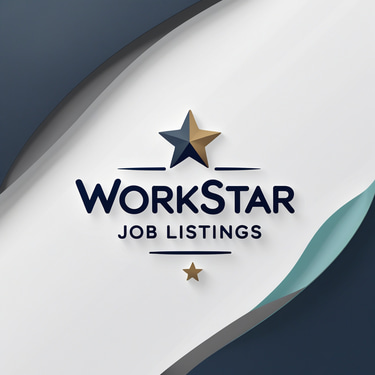How Artificial Intelligence is Revolutionizing Resume Optimization for Job Seekers
This article explores how artificial intelligence (AI) is transforming resume building for job seekers by helping them optimize their resumes for applicant tracking systems (ATS), highlight relevant skills and accomplishments, and tailor applications to specific job roles. It explains how AI tools can improve language, structure, and keyword alignment, making resumes more competitive in today’s market. The piece also introduces popular free and paid AI resume platforms and emphasizes how AI empowers job seekers to better present their value and land more interviews in a technology-driven hiring landscape.
6/15/20253 min read


How Artificial Intelligence is Revolutionizing Resume Optimization for Job Seekers
In today’s rapidly evolving job market, crafting a well-targeted, professional resume is more important than ever. With applicant pools growing larger and employers increasingly relying on technology to streamline hiring, job seekers must adapt to new tools that increase their chances of being noticed. Among the most impactful tools emerging in the career development space is artificial intelligence (AI). AI-powered platforms and applications are reshaping how individuals present their skills, experience, and qualifications—bridging the gap between what candidates offer and what employers seek.
The Rise of AI in Hiring and Recruitment
Employers today often use Applicant Tracking Systems (ATS) to manage and filter incoming applications. These systems scan resumes for specific keywords and phrases aligned with a job description, ranking them before a human recruiter ever reviews them. Consequently, even highly qualified candidates can be overlooked if their resumes aren’t tailored to meet these digital standards. This is where AI proves invaluable to job seekers—helping them understand and navigate the mechanics of modern hiring technology.
AI-Driven Keyword Optimization
One of AI’s primary advantages in resume development is keyword optimization. Many AI resume tools can analyze a job description and extract the most relevant skills, responsibilities, and qualifications. By comparing a user’s existing resume against these insights, the tool suggests strategic changes—such as integrating specific industry terminology or role-specific action verbs.
This improves the likelihood that a resume will pass through ATS filters and ultimately land in front of a recruiter. It also helps job seekers align their resumes more precisely with the expectations and language used by employers in a given field.
Highlighting Relevant Skills and Achievements
Another critical function of AI is its ability to spotlight and restructure the presentation of skills and accomplishments. Rather than listing duties in a passive or generic manner, AI tools encourage resumes to emphasize outcomes and impact. For example, instead of writing “assisted with team projects,” AI might recommend “collaborated on cross-functional projects, improving departmental efficiency by 20%.”
This transformation makes resumes sound more confident, results-driven, and tailored—key qualities that hiring managers look for when skimming through dozens of applicants.
Personalization and Customization Across Roles
AI also empowers job seekers to customize resumes for different positions quickly. Instead of using a one-size-fits-all document, candidates can use AI to generate targeted versions of their resume for each job posting. These customized resumes reflect the specific language, values, and goals of each company, which can significantly improve interview conversion rates.
This personalized approach not only shows initiative but also demonstrates alignment with the employer’s culture and needs—a major advantage in competitive fields.
Addressing Resume Gaps and Formatting Consistency
In addition to content optimization, AI can help job seekers identify and address common resume issues, such as:
Employment gaps
Ambiguous job titles
Inconsistent formatting or structure
These tools often provide suggestions for how to rephrase or rearrange content to downplay red flags and improve clarity. The result is a polished, professional document that presents a cohesive career narrative.
Real-Time Feedback and Performance Insights
Many advanced AI resume platforms offer real-time scoring, feedback, and analytics. This includes readability scores, strength ratings, and alignment percentages with specific job postings. Some tools even track changes in hiring trends, offering suggestions based on what recruiters are prioritizing at any given time.
This feedback loop allows job seekers to continuously refine their resumes and stay ahead of evolving employer expectations.
Popular AI Resume Tools
There are both free and paid AI tools that assist in resume writing and optimization. Some of the most popular include:
Teal HQ (Free): Offers resume optimization and job tracking tools.
Rezi (Free/Paid): Builds ATS-friendly resumes with AI-generated content.
Jobscan (Paid): Specializes in ATS matching and keyword analysis.
Kickresume (Free/Paid): Combines beautiful design with AI writing support.
ResumAI by Wonsulting (Free/Paid): Offers tailored resumes and LinkedIn content.
ChatGPT (Free/Paid): Can generate resume content, reword bullet points, and simulate role-specific writing prompts.
Each platform varies in its features, but all serve the central purpose of enhancing a resume’s ability to communicate value in a way that resonates with hiring systems and professionals alike.
Conclusion
Artificial intelligence is no longer just a futuristic concept—it is a practical, accessible resource that empowers job seekers to navigate the modern hiring landscape with greater confidence and strategy. By using AI to optimize resume content, highlight relevant strengths, and tailor applications to specific roles, individuals can significantly increase their chances of landing interviews and securing meaningful employment.
As the job market continues to evolve, embracing AI as a career-building tool is not just smart—it’s essential. For those who want to stay competitive, tools that blend personal storytelling with data-driven precision will be key to professional success in 2025 and beyond.
Opportunities
Connect with high-paying jobs and career coaching.
Contact us:
Jobs
321-587-6121
© 2025. All rights reserved.
